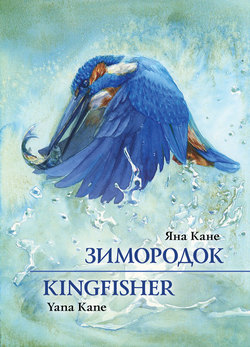Читать книгу Зимородок - Яна Кане - Страница 3
Introduction
ОглавлениеYana Kane began to write poetry while still living in Russia. She was a student in Vyacheslav Leikin's poetry workshop in St. Petersburg. At the age of 16, she relocated to the United States, which was the right thing to do. Not because it is better in the States, but because the tradition of her poetry is American – it is metaphysical, and free verse comes naturally to her; although, as you will see, she has a mastery of rhymed verse. Russian poetry is burdened by the struggles of everyday life and by societal concerns. Kane prefers not to see all of this, or at least not to fixate upon it. She is interested in the subtle border between dreaming and lucidity, between agnosticism (not unbelief, of course) and faith, between poetry in Russian and poetry in English. Her poems in the two languages are clearly written by the same individual, though in two different states of mind. As she herself formulated:
In this language,
I converse, argue, and flirt with my husband,
Teach and amuse my daughter,
Stay in touch with friends from college,
Confer with my colleagues,
Report to the boss,
Say hello to the neighbors.
In that language,
I listen to the voices of ghosts.
Their unhurried conversation
Glides along its immutable orbit.
This, of course, underrates English somewhat. Nabokov wrote: “…the subtle understatements so peculiar to English, the poetry of thought, the instantaneous resonance between the most abstract concepts, the swarming of monosyllabic epithets – all this, and also all that is related to technology, fashion, sports, the natural sciences, and the unnatural passions – in Russian become clumsy (rough-hewn)”. But for Yana Kane, it is Russian that is the language of abstractions, of memory, of dark intuitions about God. Her English poems were written by an intelligent and insightful woman; the Russian ones were written by a woman who is attuned to a lot more than she wishes to reveal in English.
This double existence (“as though at the verge of double being,” to quote Tyutchev, whose poetry probably is closest to hers) is the first such case in literature. Most bilingual writers remain themselves when moving to another language. Kane in English is a different person with a different memory. Yet all of this is painted on a Russian canvas; grows from Russian soil, from clay (a word that occurs repeatedly in her poetry, which is important and revealing); from the Russian subconscious and Russian intimations of God. It is Kane’s religious sensibility – not at all church-based, and even more definitely not sectarian – that places her poetry into the tradition of Tyutchev, Tarkovsky, Zabolotsky; it is this circle of authors that determines its poetics and themes.
Poetry needs no introduction, justification or explanation. Kane is a mature poet who has found a way to draw a lyrical theme out of her drama and to transmute this drama into literary fact. Since by now thousands of our compatriots – former, returned, or living in two countries – are burdened with such a double being, this book will be in demand, it will be read, and it will lighten many a soul.
This is the first case in which I do not regret that a talented poet left Russia. She emigrated into literature. And that is the best thing you can choose to do with yourself.
Dmitry Bykov
